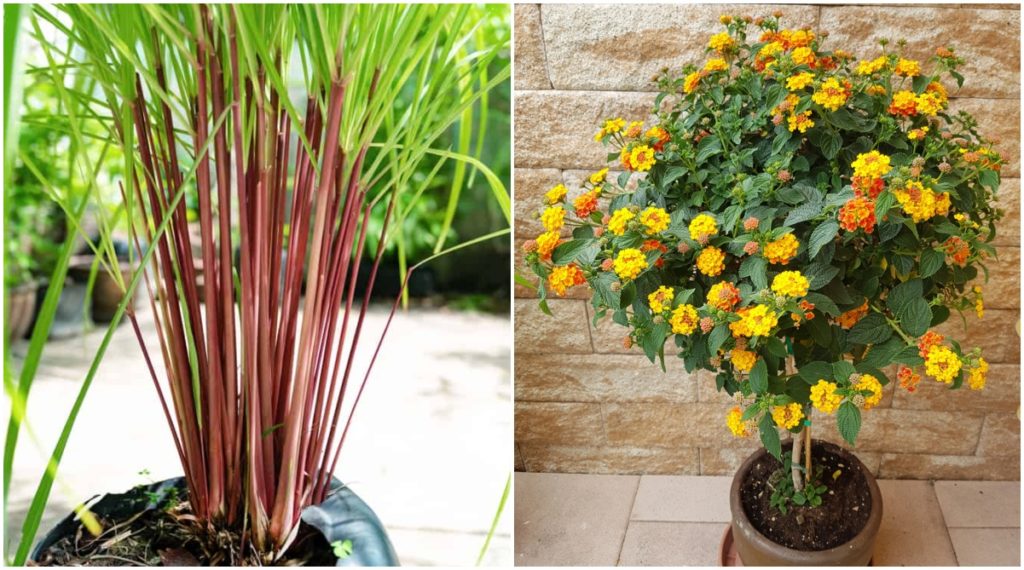
Mosquitos have got to be the most unpopular bugs on the planet – and rightly so!
Their peskiness can ruin a barbeque or picnic in the great outdoors faster than you can say citronella. Bug repellent sprays aren’t always handy and non-natural ones are exceptionally bad for both the environment and you.
Luckily there are a handful of plants that can help repel mosquitos and save your summer garden adventures.
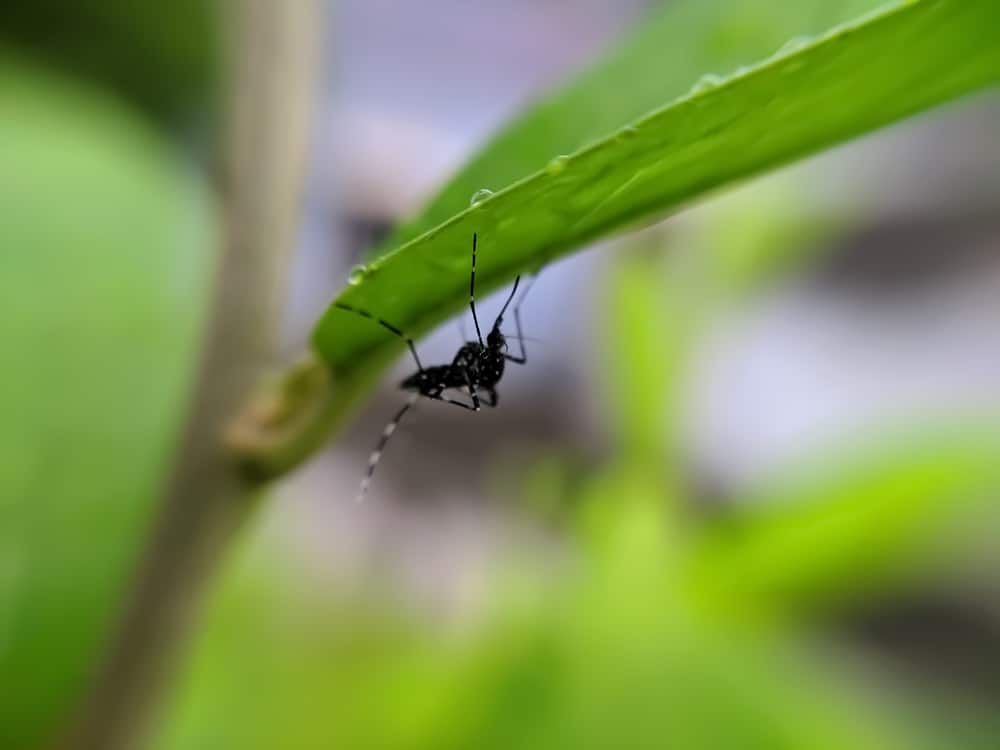
While many of these plants contain certain levels of citronella and other pest repelling oils, simply planting them won’t necessarily solve your mosquito problems. In most cases, you’ll have to rub, crush or cut these plants so they release their mosquito-repelling oils.
There are several plants with these mosquito-repelling powers, some even deter other garden pests, but there are a few that won’t work at all. Many plants are often advertised as having mosquito-repelling properties, but in most cases, there is little to no scientific proof to back up these claims.
7 Plants That Work To Repel Mosquitoes
1. Citronella Grass
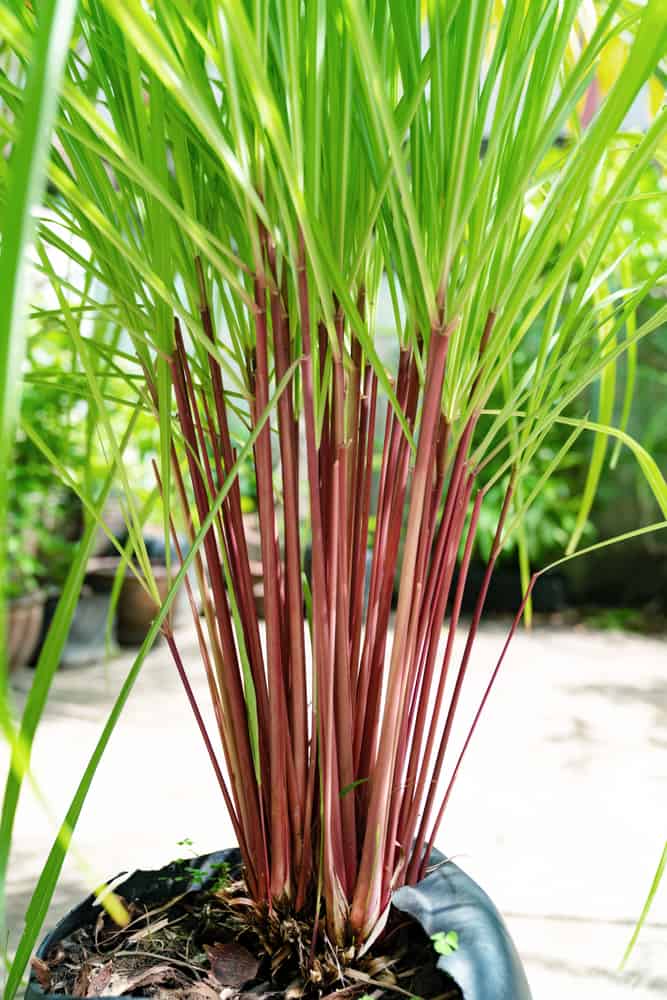
True to the name, this clumping perennial grass contains high amounts of citronella, which as we all know, repels mosquitos.
Citronella grass also emits a delicious lemony scent, causing it to often be confused with lemongrass. The pair also look very similar, but they’re very different plants.
Citronella grass doesn’t emit its citronella essential oil on its own – it needs a bit of help. Luckily, you simply need to crush or cut a few blades of grass, and there you go, citronella oil on the spot. You can rub these crushed or cut blades directly onto your clothes or skin.
Being an easy, natural mosquito repellent isn’t the only thing this grass is good for. It makes quite a statement in containers and beds alike, often growing to six feet tall and four feet wide when given the space. Citronella grass is also a great companion plant to most flowering plants as it deters whiteflies with its lemony scent.
It has many uses out of the garden too. In Asia, citronella grass is often used as a spice and natural medicine. It’s used to soothe headaches, reduce fevers, and treat lice. It also has anti-bacterial and anti-fungal properties, making it a great natural ingredient for homemade cleaning products.
Citronella grass is a great patio plant that can easily be plucked, cut, and crushed whenever a mosquito is buzzing about.
2. Lavender

Lavender has become a garden staple over the years. It also emits a delicious fragrance that fills our gardens and homes, especially when used in cut flower bouquets.
It’s this decadent fragrance that puts lavender on this list. Studies show that its strong scent affects mosquitos in a similar way to DEET (diethyltoluamide), which overwhelms them. Not only does their strong scent help deter mosquitoes, but lavender also contains linalool, a type of alcohol that repels these pests.
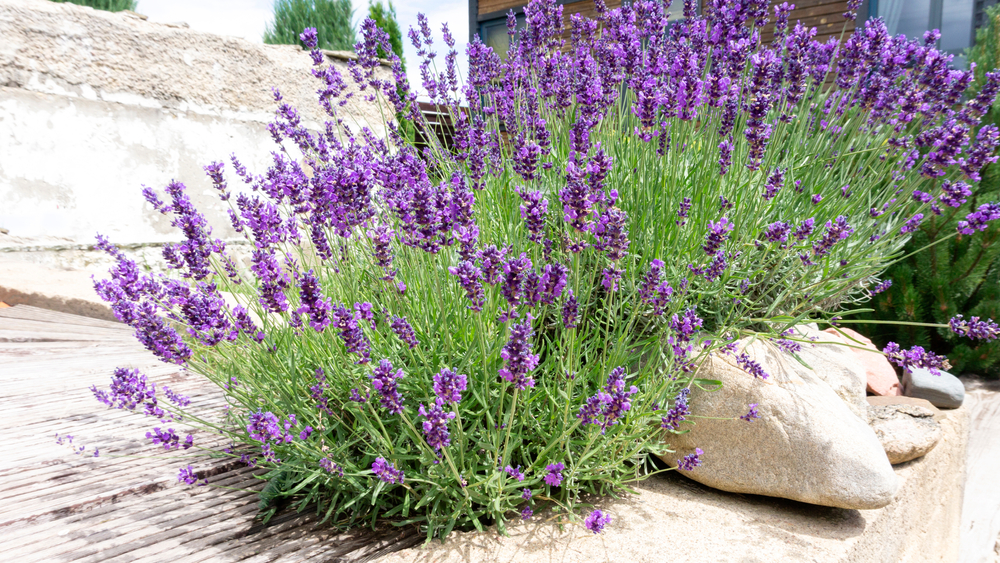
However, to get the best out of lavender and its super strong fragrance, it needs to be crushed or snipped. Like citronella grass, you can rub lavender directly onto your clothes or skin. You can also make your own lavender oil by infusing the flowers in some coconut oil. This homemade lavender oil can be used in homemade candles or applied directly to the skin. For the best mosquito repelling results, you can also pair your lavender oil with some citronella.
Lavender’s aroma doesn’t only repel mosquitos. It can also deter moths, fleas, and flies. At the same time, it attracts bees and several other beneficial insects to your garden.
Related Reading: How To Plant A Lavender Hedge (& 12 Reasons Why You Should)
3. Catnip
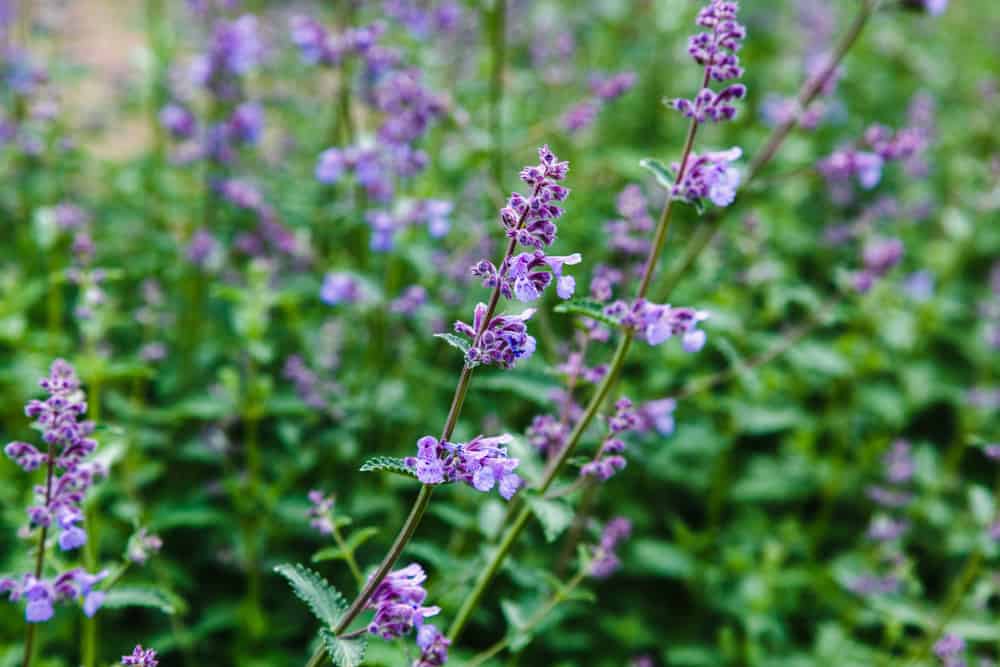
This lavender-lookalike is famous for sending our feline friends into a euphoric frenzy. However, catnip is more than a herb for cats. It has sweet little flowers with flecks of purple that will add color to your garden in no time.
On top of that, catnip repels several insects, including mosquitos. The chemical compound nepetalactone, which is what attracts cats, deters mosquitos and other pesky summer pests.
Recent studies have proved that this chemical compound triggers a pain or itching receptor in mosquitos, making them buzz away from your garden after one sniff.
Further studies have found that catnip is as effective as many other synthetic mosquito repellents, including DEET.
Catnip is one of the few plants that deter mosquitos on their own. However, there are ways to get the most from this handy little herb. You can cut a few clippings and spread them around your picnic spot or outdoor sitting area. A catnip spray is easy to make, and if you have furry felines, it’s a dual-purpose spray.
4. Marigolds
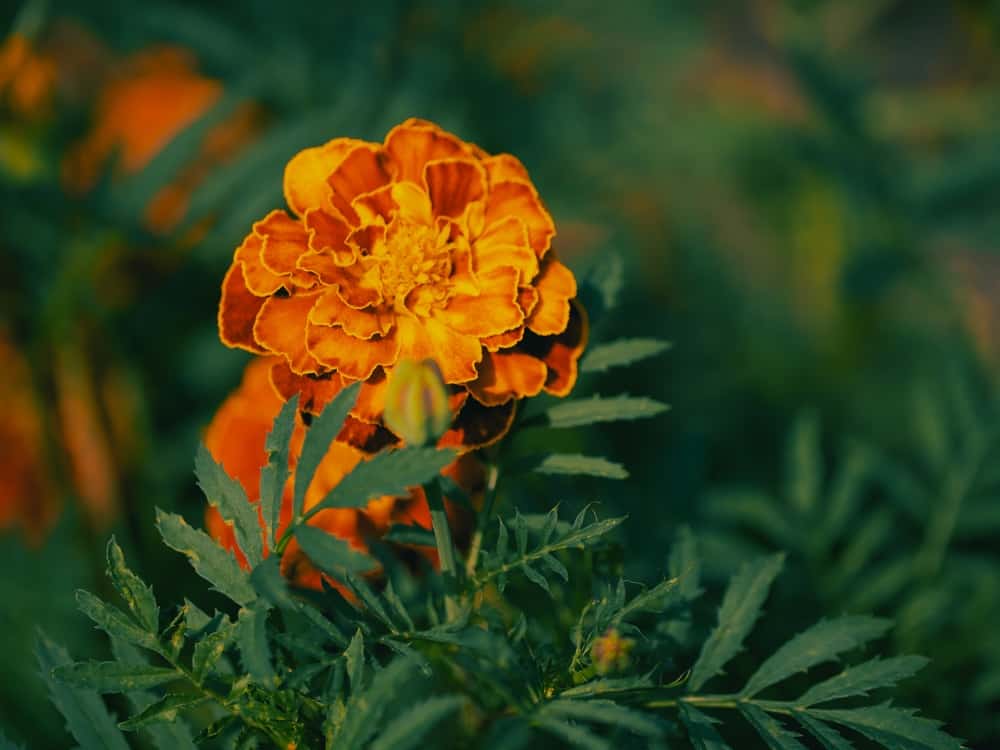
Marigolds are the gold standard when it comes to companion planting and attracting beneficial insects. They’re also a bright, striking addition to beds and container gardens. And, it turns out marigolds are a wonderful deterrent to mosquitos. They’re also one of the few plants that are most effective in their plant form.
During their natural biological processes, marigolds produce chemicals, namely pyrethrum and thiophenes, which are off-putting to mosquitos and other summer pests. These chemicals can be brought out when crushing these stunning plants and making marigold essential oil. However, they’re highly effective sitting in the garden too, often deterring mosquitos as well as artificial sprays.
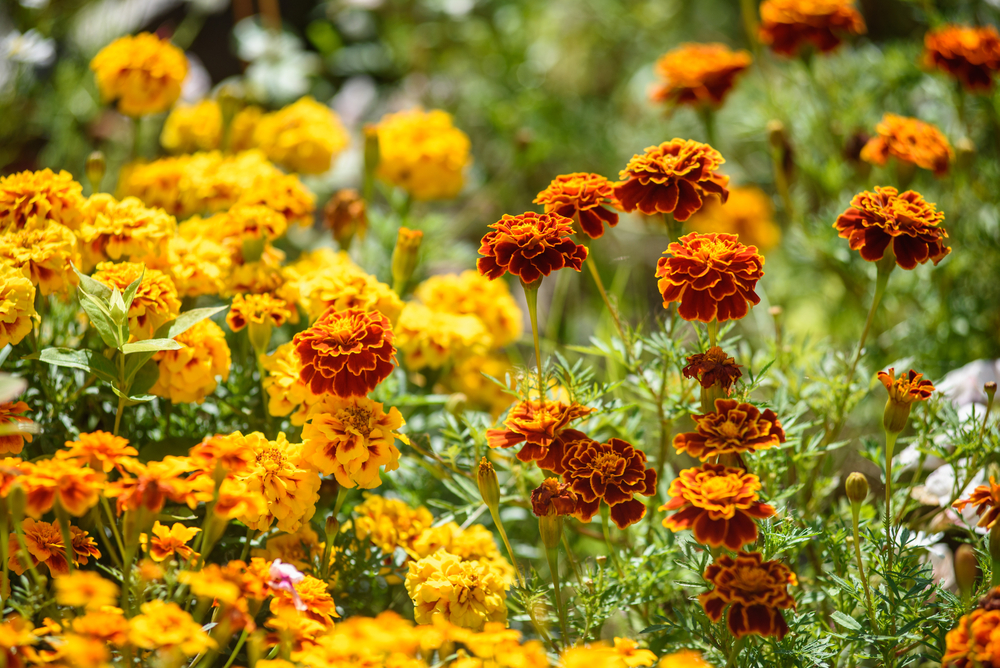
Marigolds are great growers, often thriving in a variety of conditions and landscapes. While they mostly reside alongside vegetable patches, repelling nasty bugs like nematodes, marigolds will happily brighten any space.
5. Mint

Mint is a wonderful addition to any herb garden. It’s a prolific grower and handy for gardeners who love to dabble in cooking and beverage experiments. The strong minty scent of all mint varieties wards off mosquitos and plenty of other pests.
The most effective mint variety is peppermint, as it gives off the strongest minty fragrance. Studies have also shown that when peppermint is applied topically as an oil, it can deter mosquitos anywhere from 45 minutes to two hours.
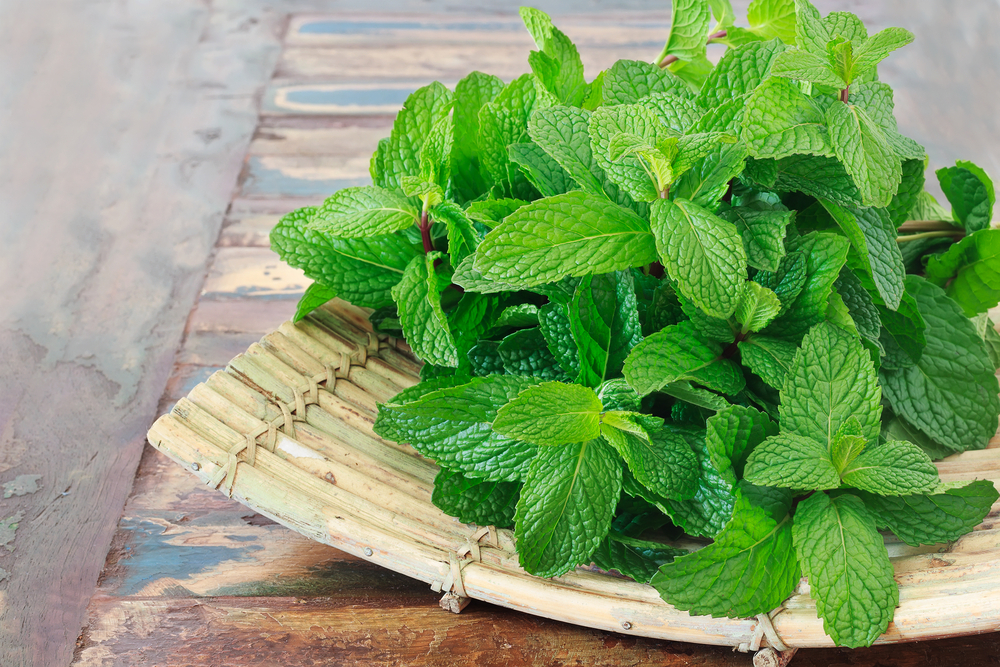
But you don’t have to make your mint essential oil to reap the mosquito repelling benefits of this herb. Fresh mint works wonders, and you can easily make a mint spray for yourself or any area prone to pests. Simply crush some mint leaves and infuse them in some boiling water. Once it has cooled, strain it and pop your minty mix into a spray bottle.
It’s important to note that some varieties of mint are not safe to use as a mosquito repellant. While effective, they can be toxic. Pennyroyal is one mint variety in particular that many add to their list of mosquito repelling plants, but is actually toxic. It has adverse effects on humans, cats, and dogs, and if consumed at all, can result in death.
6. Lantana
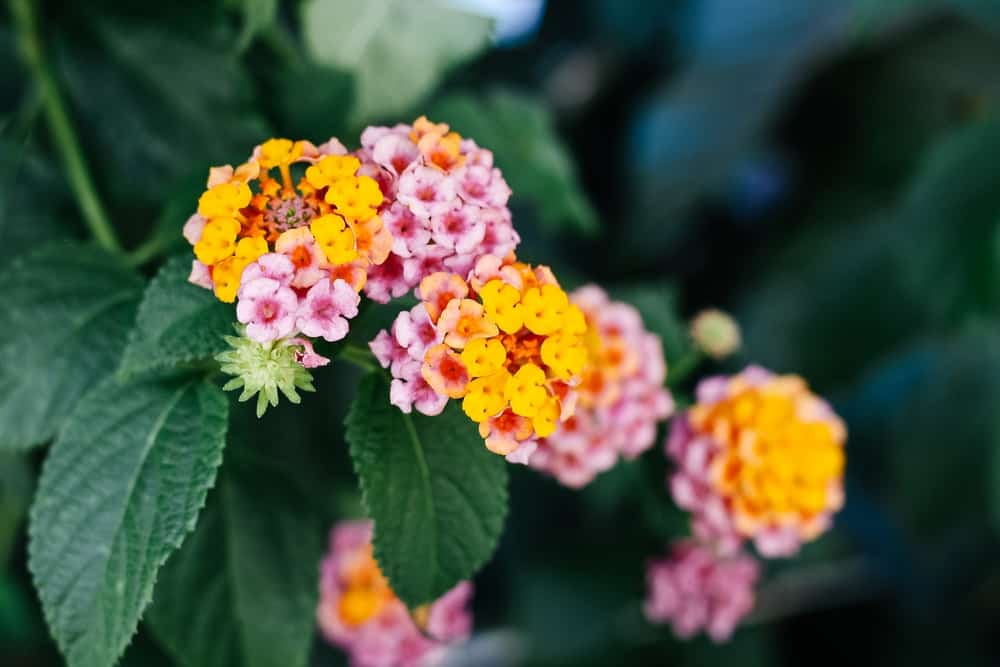
Lantana is a spectacular flower that brightens any space. It’s a common bedding plant, often added to gardens for its beauty and ability to attract hummingbirds and bees. However, lantana’s ability to attract pollinators is not its only superpower. This stunning perennial shrub deters mosquitos better than most plants.
Several studies have shown lantana’s efficacy in repelling mosquitos. One study in particular found that lantanas were extremely effective in deterring malaria-carrying mosquitos. It further found that mosquitos that fed on these plants lived shorter lives and had diminished reproductive success.
This groundbreaking discovery helped researchers find cost-effective, natural ways to fight the devastating effects of malaria and mosquitos around the world.

Lantana works well planted in beds, but it’s best to display them in high-use areas where they can be disturbed. When rubbed or crushed, lantana leaves and flowers give off a strong citronella scent, increasing its ability to deter mosquitos. You can also cut them and add them to cut flower bouquets to bring their beauty and superpowers indoors.
Another sure-fire way to deter mosquitos using this plant is to dry them out, crush the leaves and burn them. Don’t rub crushed lantana leaves on yourself, however, as its oil can irritate the skin.
7. Basil

Basil is a common and popular herb for most, mainly because it grows well and many dishes just aren’t the same without it. While basil isn’t grown for its blooms, they add a delicate look to the herb garden and attract bees.
What many don’t know is that this yummy herb can deter mosquitoes. Studies in recent years have found that the compounds in basil were extremely toxic to mosquitos and their larvae. Basil oil is the most effective in the task of deterring mosquitos, but plain basil leaves are also quite effective.
While other plants may be better at chasing away pesky mosquitos, basil is a great choice for those looking for a multipurpose plant to add to their herb garden.
Plants That Don’t Work To Repel Mosquitoes
1. Mosquito Plant
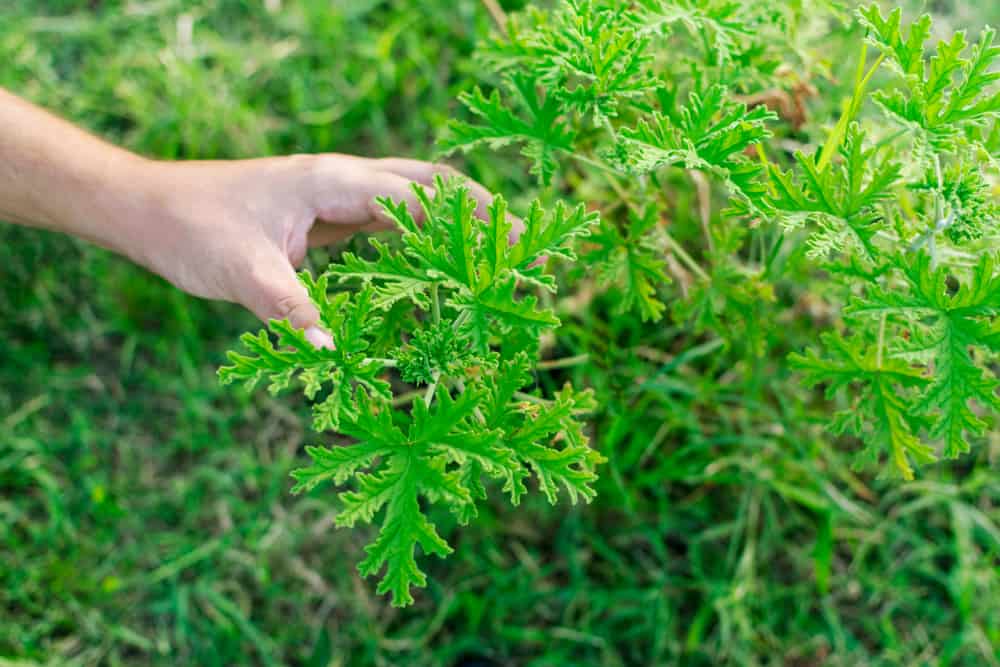
Many might know this variety of scented geranium as the citronella plant, because of its citronella scent. This famous mosquito-repelling fragrance is what makes this geranium a go-to plant for deterring these pests. Ironically, however, the mosquito plant does not actually affect mosquitos.
Despite it smelling like citronella, the mosquito plant contains minuscule amounts of the compound, rendering it useless against mosquitos.

While it may be the biggest case of false advertising in the gardening world, this pretty geranium deserves a place in your landscape. It smells delicious and is an easy-going plant, thriving in a range of conditions. It also makes a great indoor plant.
2. Rosemary
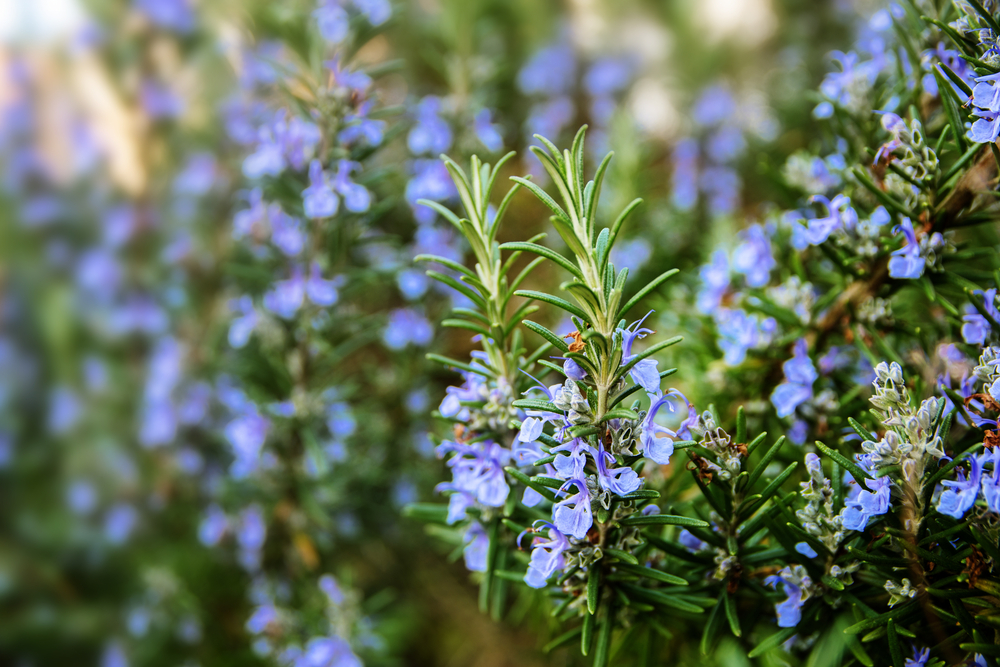
Rosemary is a herb garden staple, growing in a variety of conditions and even becoming a go-to edible garden hedge. Alongside its usefulness in the kitchen, rosemary smells great and boasts pretty, quaint blue and white flowers during summer.
Many claim that rosemary’s strong scent wards off mosquitos, acting in a similar way to other pungent plants. Unfortunately, there’s currently no scientific evidence to back up these claims.
That isn’t to say you shouldn’t try adding rosemary to your herb garden. It thrives in most conditions and grows well on kitchen windowsills for the urban gardener. It might not work to deter mosquitos but it has several other uses in both the kitchen and elsewhere.
3. Floss Flower
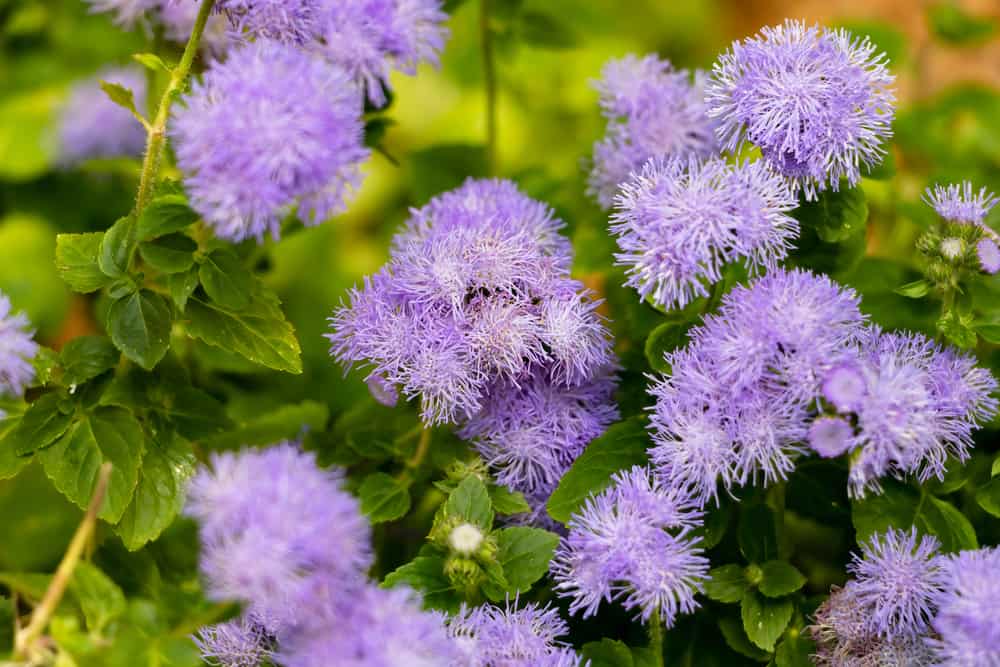
These pretty flowers are often grown for their fuzzy purple flowers. Floss Flower is punted as an effective mosquito repelling plant, mainly because it contains coumarin. This chemical is used in many insecticides and store-bought mosquito repellants.
This may convince many to grow floss flowers near their windows and entertainment areas. However, there is no research to prove that the amounts of coumarin within floss flowers are enough to effectively deter mosquitos.
Don’t let this small setback stop you from planting this unique plant in your garden though. It’s a stunning, eye-catching addition that might stop a mosquito or two from buzzing into your personal bubble.
4. Garlic

Garlic commonly occurs on lists describing mosquito repelling plants, mainly due to its pungent smell. Some old wive’s tales also state that simply consuming some garlic can stop mosquitos from finding you. Garlic may be effective at keeping vampires away, but unfortunately, it has very little effect on mosquitos.
Some studies have shown that rubbing garlic on the skin does have some success in deterring mosquitos. But, the plant itself has no adverse effects on mosquitos.
While spreading garlic all over your skin may keep these pesky bugs away, it’ll be sure to keep everyone else away too.
This smelly bulb is better grown for use in the kitchen to flavor your meals, rather than as a mosquito repellant. Several other plants are far more effective in repelling mosquitos, and they smell better too.
Summer is a time for fun and relaxation, not worrying about mosquitos. Luckily there are several plants that you can add to your landscape that are highly effective in keeping these critters away. From lavender to basil, you have a range of plants to choose from.
There are a few plants that claim to have adverse effects on mosquitos, but science and research claim otherwise. In some cases, there just isn’t enough science to back up the claims. At the end of the day, all of the plants have their place, but some are far better at keeping mosquitos away.
